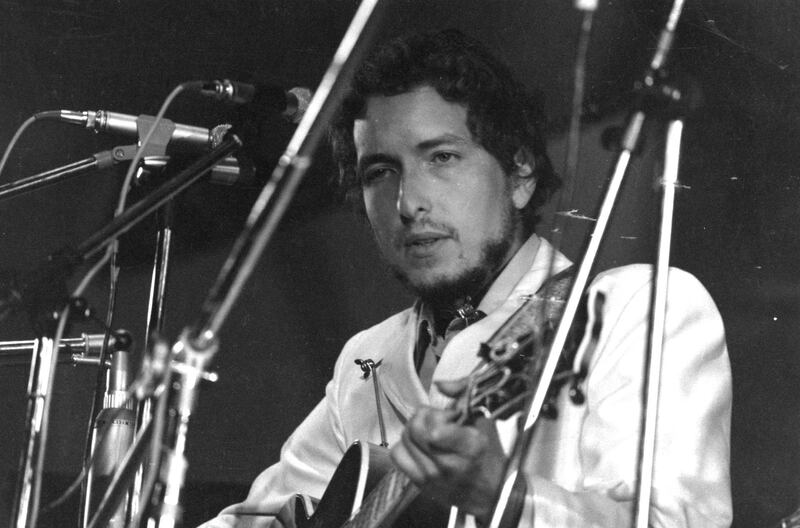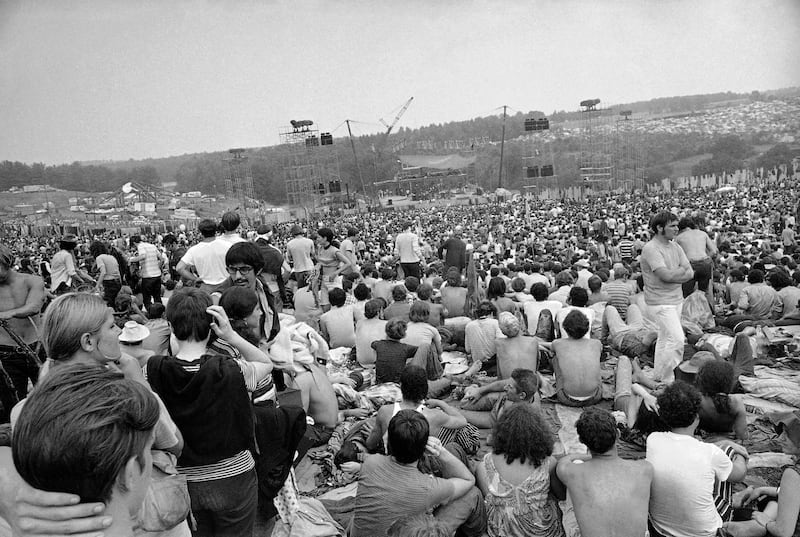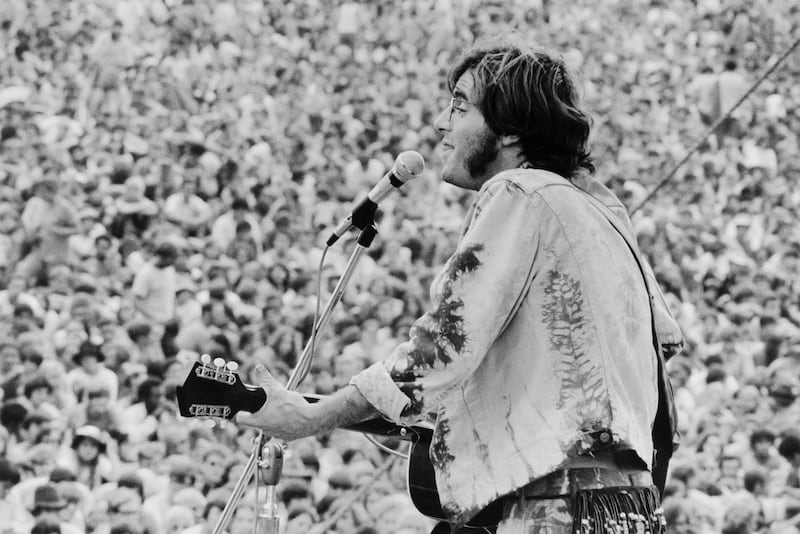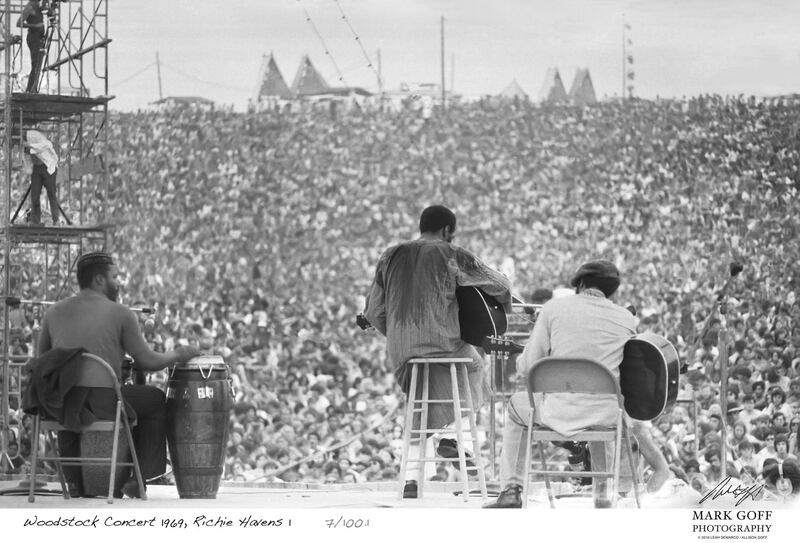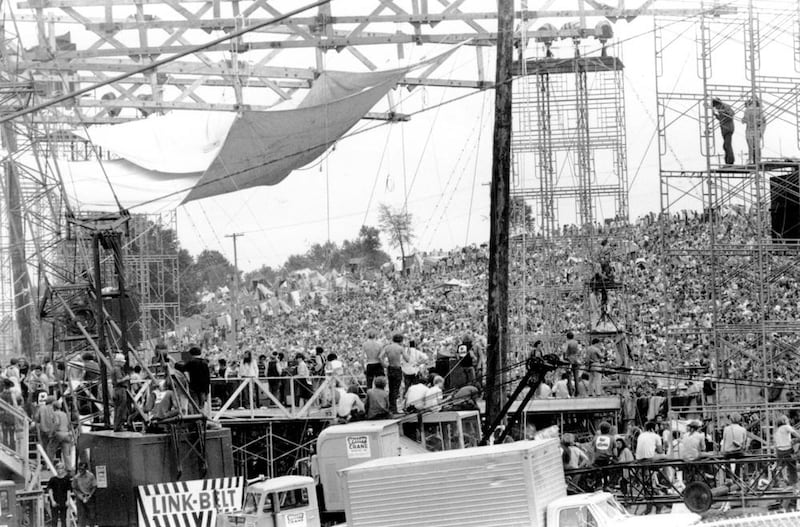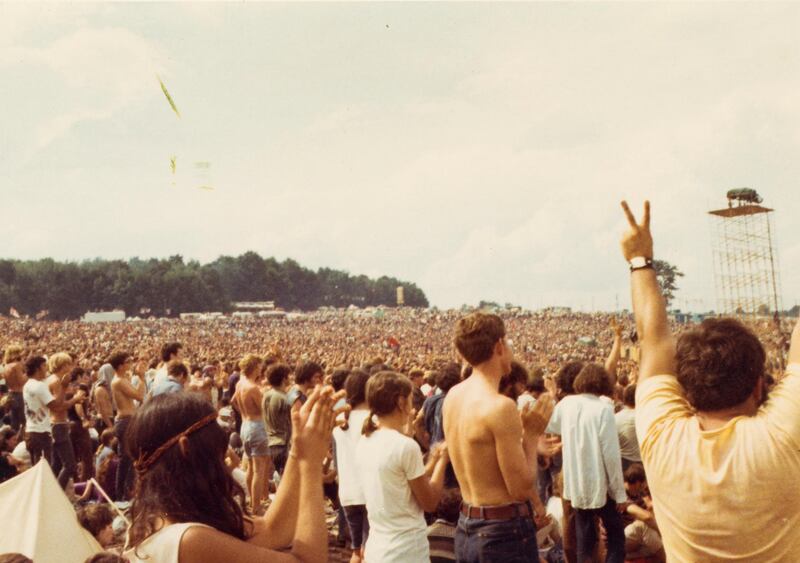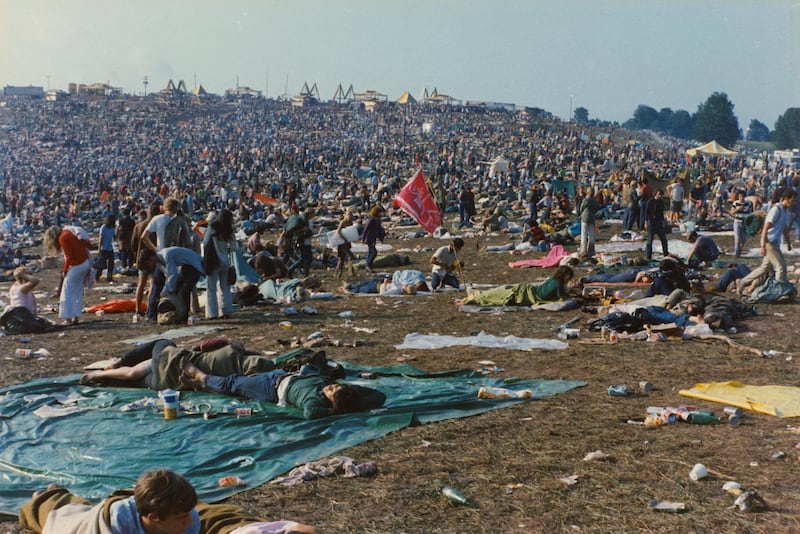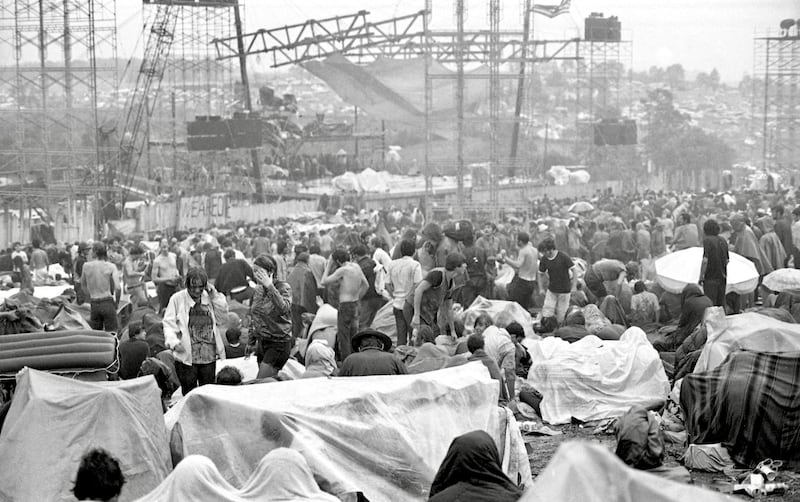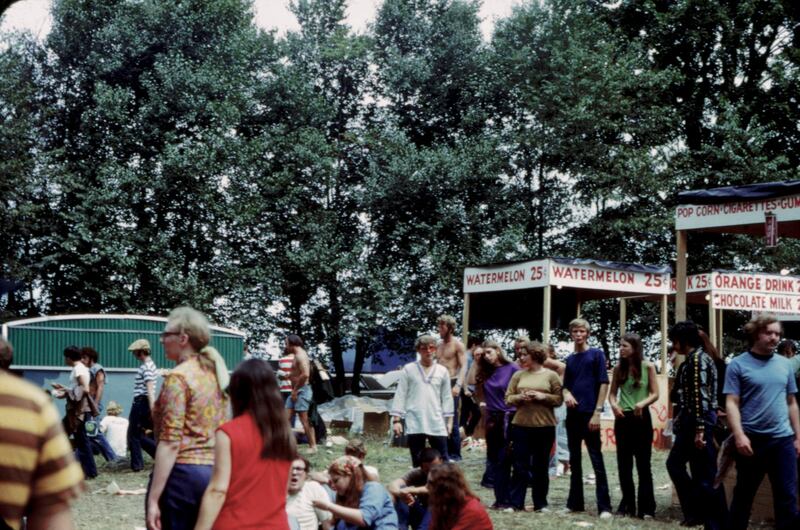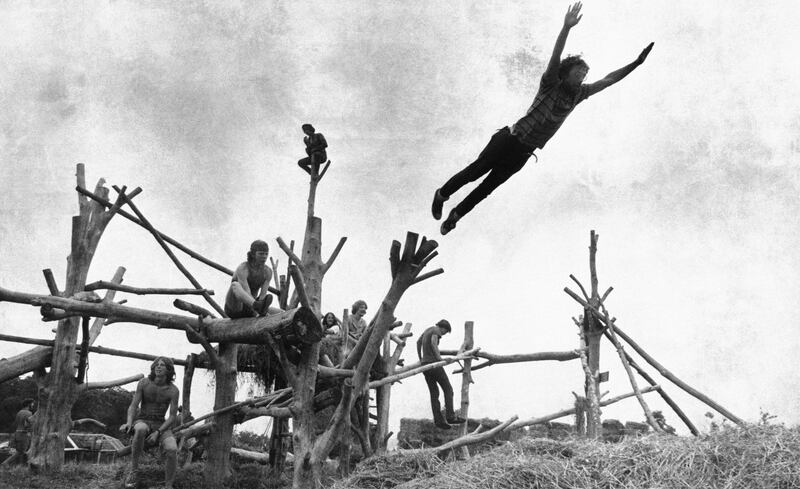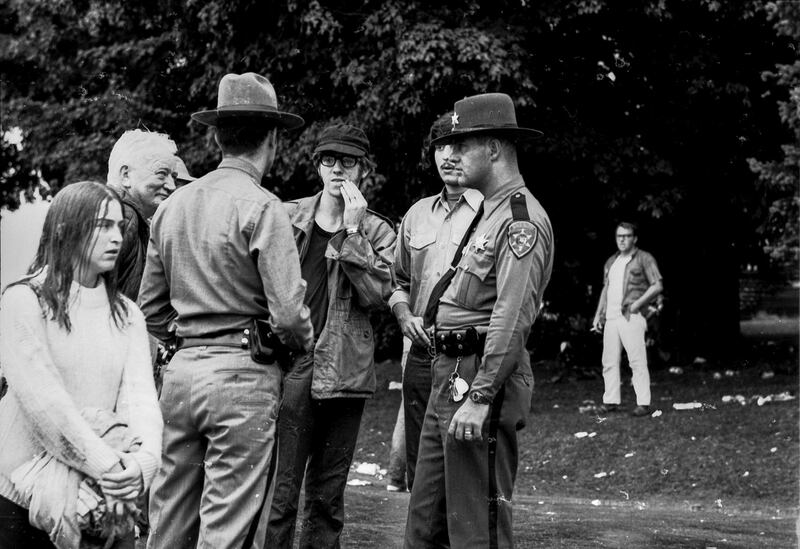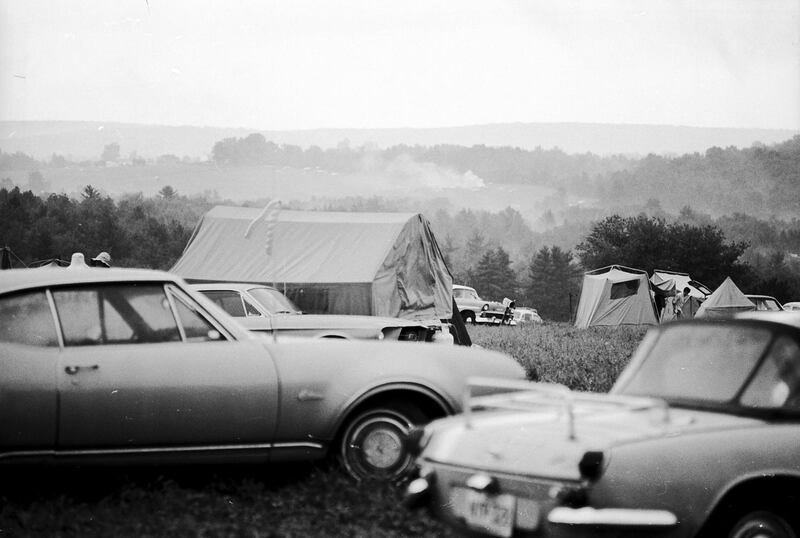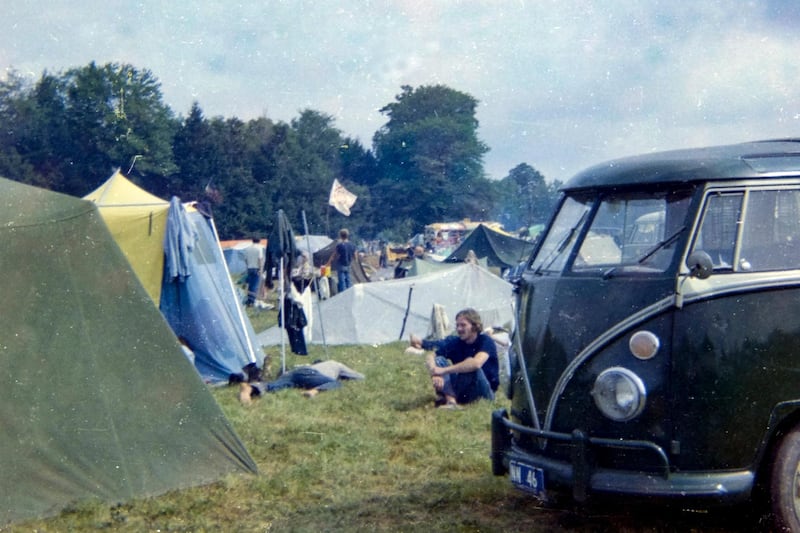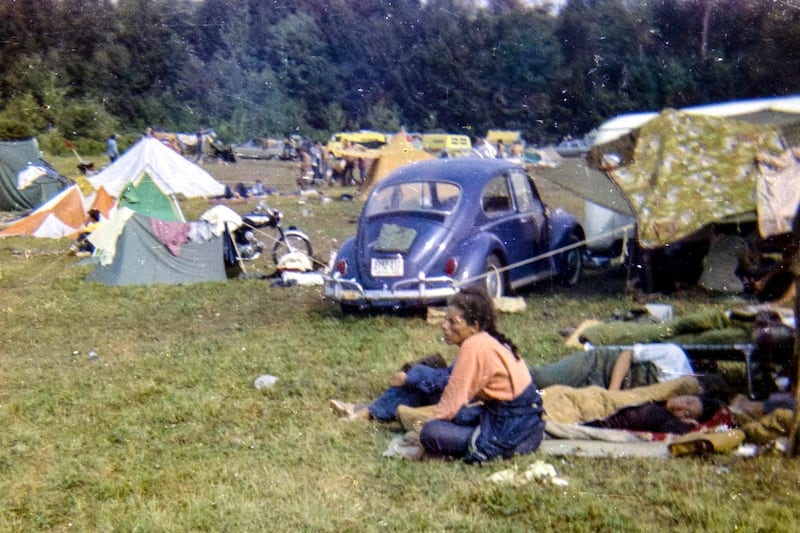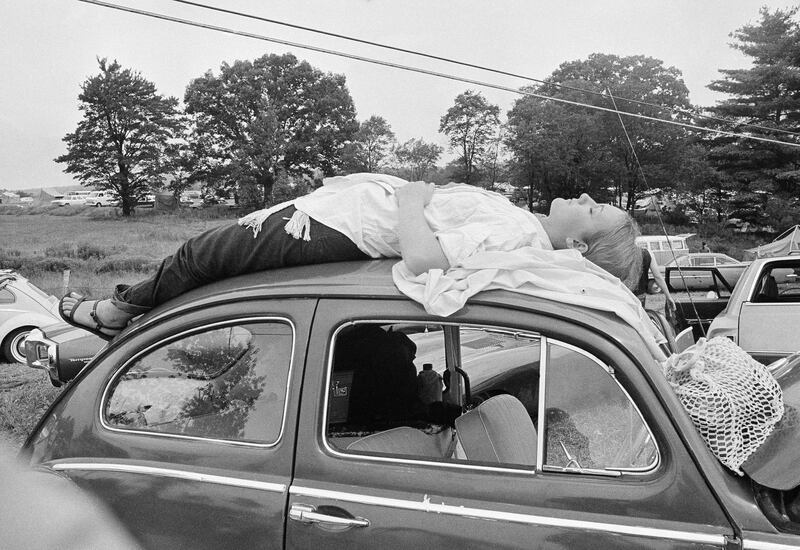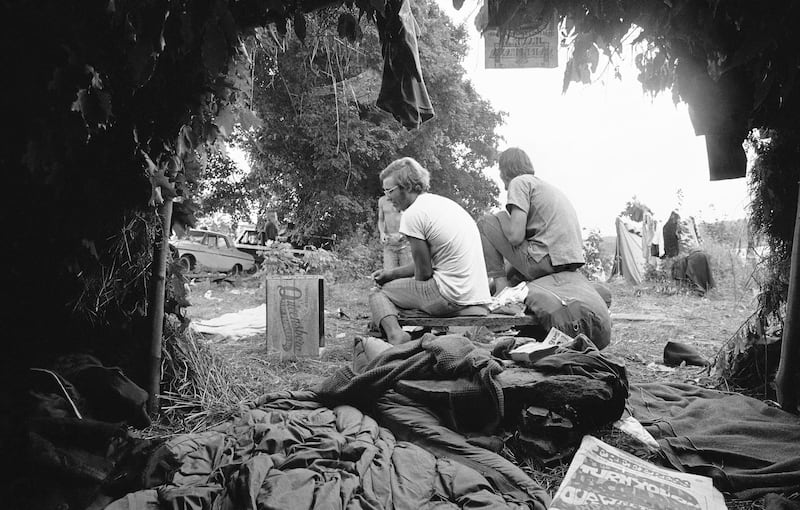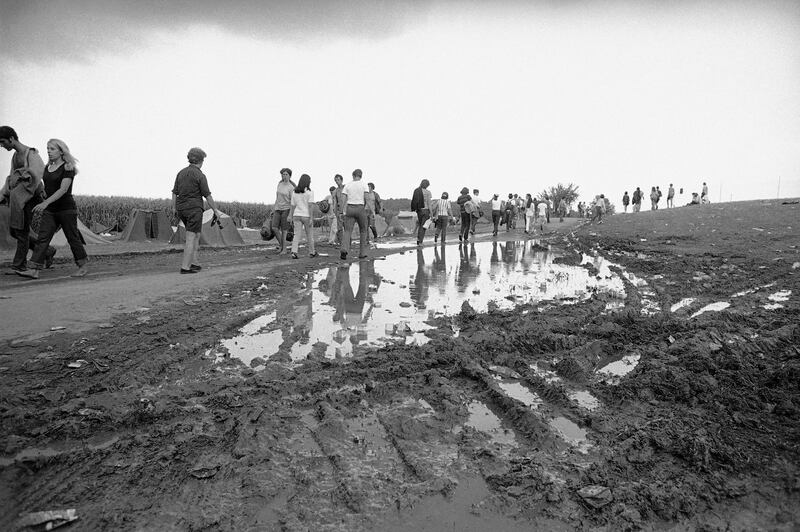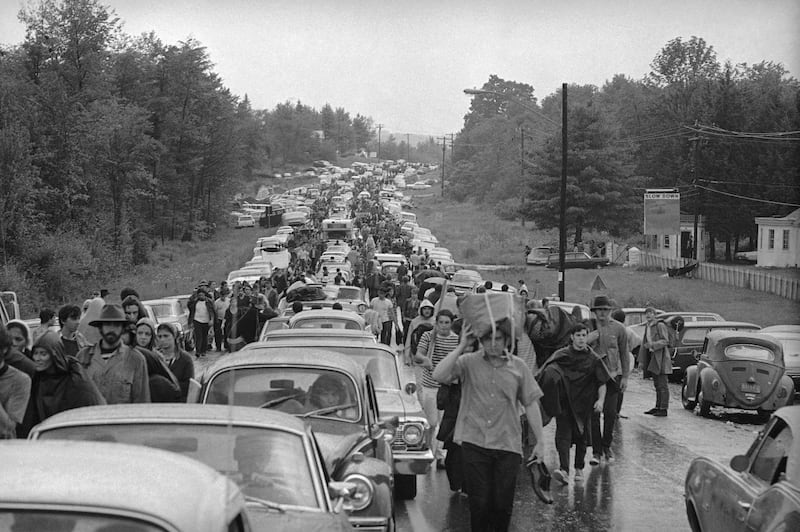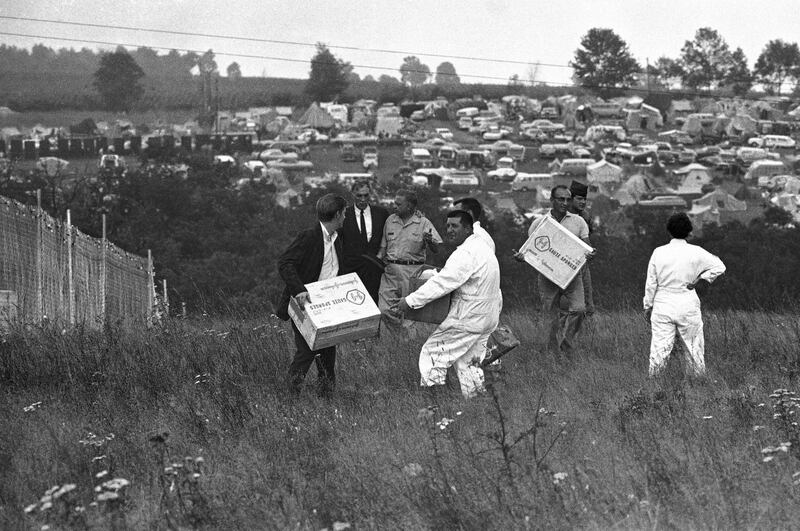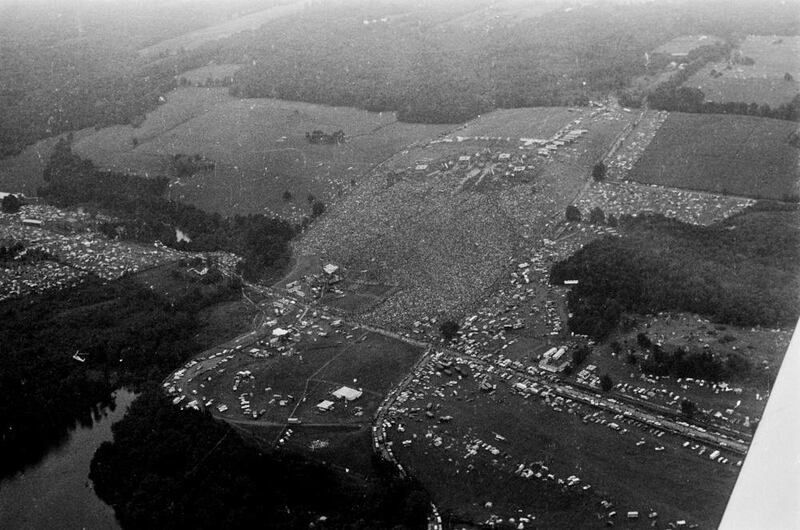In the early summer of 1969, preparations were well advanced for what would be remembered as the world’s greatest festival of rock music.
The venue, in a small town called Bethel, just 80 kilometres from the town of Woodstock in Upstate New York, had been chosen with care.
Not only was Woodstock a thriving artists’ colony and centre for 1960s counter-culture, it was also the home of Bob Dylan, the biggest name in popular music and the voice of an entire generation.
In 1969, Dylan was living as a near-recluse, the result of a bad motorcycle accident three years earlier that coincided with a period of artistic burnout. But there were well-sourced rumours that he was ready to perform again, and where better than in his own backyard? For the organisers of Woodstock, their festival was the obvious choice for Dylan's comeback.
Except that it wasn't. Instead, Dylan chose to make his return more than 6,000km away, on an island off the coast of England: the Isle of Wight. So how did the rival 1969 Isle of Wight Festival pull off this astonishing coup? Book publisher Peter Harrigan knows exactly what happened – because he was there.
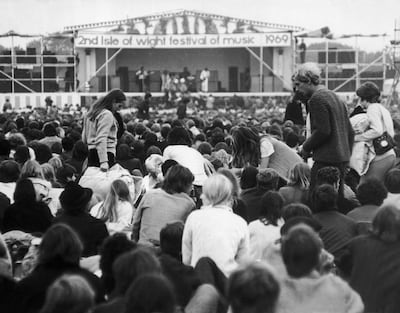
Harrigan is the founder of Medina Publishing, which has a string of successful titles about the UAE and the Gulf, but 50 years ago, he was a teenager growing up on the Isle of Wight, about to become part of the gang that carried out the musical heist of the century: stealing Bob Dylan from Woodstock.
"I was just finishing sixth form at the local grammar school," Harrigan says. "A girl who was in my class came up to me and said, 'Do you want to work with my brothers? They are running some sort of pop festival this year.'"
The girl’s name was Jo Foulk and the previous August her brothers – Ray, Ron and Bill – had organised what they called The Great South Coast Pop Festivity from their home on the Isle of Wight. The concert was a fundraiser for a local swimming pool, but even so, managed to attract some big names to an island that was a ferry ride from the nearest big city, and little known outside the UK.
Headlining the 1968 bill were the Californian psychedelic band Jefferson Airplane, Mark Bolan's T Rex – then still called Tyrannosaurus Rex – and The Crazy World of Arthur Brown, whose eponymous lead singer performed their No 1 hit Fire wearing flaming horns.
For the 1969 festival, the Foulk brothers had bigger plans, even though, as Harrigan recalls, “we were still basically just out of shorts”. What better way to bring in the crowds, they decided, than with the world’s biggest act? The Beatles had given up performing live in 1966 – so why not Dylan?
Making the Isle of Wight festival happen
To lure the Mr Tambourine Man singer to the Isle of Wight, Ray, who was studying film-making, put together a short film promoting the island's cultural and literary heritage.
He then flew to New York to pitch the festival to Dylan’s manager, Bert Block. “Within a matter of weeks Dylan had accepted to come over to the Isle of Wight,” Harrigan says.
____________
Woodstock: How the festival became an event that defined a generation
____________
“This was a complete shock for the Woodstock organisers. People could not believe it in the industry in the UK, either. Here were a small group of festival organisers who had come from nowhere and suddenly snatched Bob Dylan.
“From there on out, the event really took off and we were riding a roller coaster without too much experience.”
Just short of his 20th birthday, Harrigan had accepted the post of festival press officer. He qualified for the role mainly by “just being a friend of the sister of the brothers, and they needed someone to run media”. In a time before online social platforms, the job involved trying to persuade newspapers and broadcasters to publicise the event and, above all, sell tickets.
This was a task that suddenly became a lot easier with Dylan’s addition to the line-up, even if that actually made the job, with its intense scrutiny, a lot harder.
July 16, 1969, may be remembered by most of the world for the launch of Apollo 11, taking the first men to the Moon, but for Harrigan the date is significant for a cable that arrived from the US. It read: “Bob Dylan and Band will accept Isle of Wight 31st August 1969. Delay on transatlantic phones. Urgent you call me.” It was sent by Block.
Six weeks to go
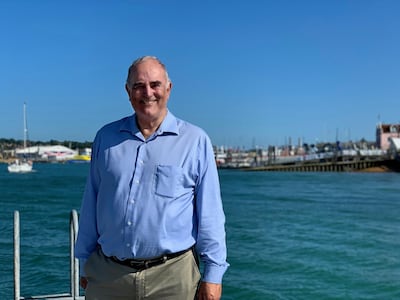
At that point, there were only six weeks to go before the festival, and suddenly everything had changed. Dylan's participation was dependent on his fee and other costs, including his then backing group, the legendary The Band, who had a string of their own successful albums. Dylan's fee, Harrigan recalls, was $50,000 (Dh183,662) plus expenses. Festival tickets were priced at £2 (Dh8.9) for Dylan Day on Sunday, August 31, or £2.50 for the entire weekend, which also included The Who, The Moody Blues and Richie Havens, who also performed at Woodstock two weeks earlier. The sudden explosion of interest in the festival and accompanying rush for tickets came as a complete shock. "There really wasn't much time to think about it," Harrigan says. "We just had to get on with it. Somehow, it all came together."
An estimated 150,000 people attended over the two days. “It was entirely different to what you see now in festivals,” Harrigan says. “People just rocked up, sat on the grass and listened. Some had tents or, if they did sleep, just crashed out on the grass and hoped it didn’t rain.”
Celebrity guests included John Lennon, George Harrison and Ringo Starr of the Beatles, Keith Richards of the Rolling Stones and Eric Clapton. Among the paying Dylan fans was a young Elton John, who was at that time still looking for his big break. Almost exactly a year later, Dylan would come looking for John in his dressing room during the US tour that made the Rocket Man a star.
Dylan and The Band arrived by hovercraft and played 17 songs, four of which were later released on his 1970 Self Portrait album. Harrigan admits he doesn't remember much of the music, being too busy with his media role, which also shaped his interaction with the stars.
“Most of the time I was backstage dealing with questions, trying to write press releases and so on. The event itself was a bit of a daze.”
Half a century later, it is Woodstock, despite the absence of Dylan, that is embedded in popular culture. The US festival, despite the tagline “three days of peace and music” was, in reality, three days of mud, rain, chaos and monster traffic jams, but was memorialised by a big-screen documentary and a hit live album.
By contrast, just like the island, the Isle of Wight Festival is still relatively obscure. “All came off extraordinarily well,” says Harrigan. “There wasn’t any wholesale damage, no violence, very few arrests. It just came and went. Within weeks, the place had been cleaned up and you couldn’t tell there had been anything there.”
Things went less well the next year, when the festival, headlined by Jimi Hendrix and The Doors, was overwhelmed by 700,000 people, according to some estimates. The organisers were forced to make it free, and residents’ fears about being overrun by hippies led to local legislation that effectively blocked future large gatherings. The festival was finally revived in 2002, although under new management, but a one-off special concert this August called All Wight Now will mark the 50th anniversary of the 1969 shows. Harrigan is one of those involved in its organisation, and hopes it will lead to a permanent visitors’ centre to celebrate the history of the original festivals.
As for the young press officer, once Dylan and the others had departed, he went to university. Afterwards, he received the job offer of a lifetime from Chrysalis Records, handling press for Joni Mitchell and Jethro Tull. But he turned it down. "What I had seen in the raw and heady days of running festivals was something I didn't quite like," he says. "There was a disconnect between the message of the music and the business side behind it."
Instead, he went to northern Nigeria for three years of voluntary service. From Nigeria, Harrigan moved to Saudi Arabia, in part drawn to the region after witnessing Nigerian Muslims preparing for Hajj.
He spent the next 30 years in the kingdom, in a variety of jobs, before founding Medina Publishing 10 years ago. This included the Arabian Publishing imprint, with representation in Ras Al Khaimah.
The name “Medina”, it turns out, is not an alternative spelling of the Saudi city, but refers to the Medina River on the Isle of Wight. It is a useful connection for his two worlds, however, as Harrigan still visits the Gulf. In December, he even found himself in the historic old city of Diriyah for a three-day festival headlined by Enrique Iglesias, David Guetta and OneRepublic.
“It was mind-boggling, and for me almost the circle turning,” Harrigan says. “Here I am, in Saudi Arabia, watching music with Saudis of all ages, women and guys. After all those years the one thing I could never had predicted was a pop festival in Saudi Arabia.” If only Bob Dylan could have been there.
All Wight Now is at the Isle of Wight Country Showground on August 31
